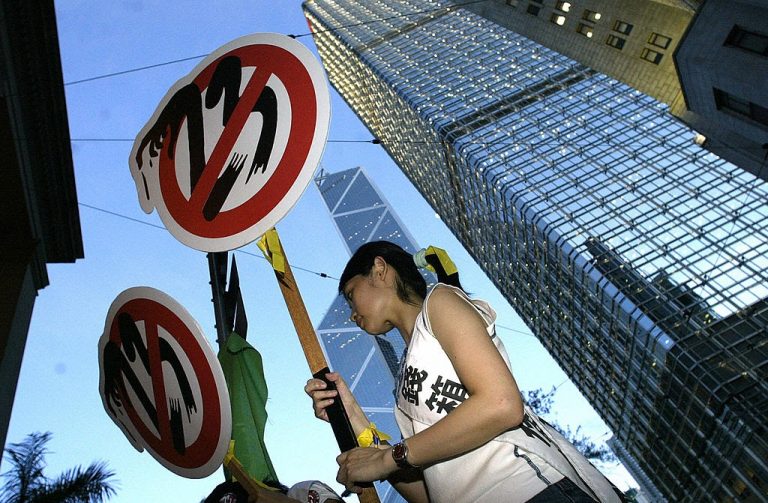Prior to the Sept. 26 federal election in Germany, Facebook increased its censorship in the country, suppressing content it considered as COVID-19 misinformation. According to an Associated Press (AP) report, Facebook even banned users who tried to rebut posts tagged as false.
The Facebook crackdown, announced on Sept. 16, was part of the company’s policy against “coordinated social harm,” which the firm says involves “networks of primarily authentic users who organize to systematically violate our policies to cause harm on or off our platform.”
Almost 150 pages, groups, and accounts of the Querdenken movement were suppressed. The movement began as a protest against government measures including COVID-19 lockdowns and face mask mandates. While the company justifies such suppression, people affiliated with the Querdenken movement have accused Facebook of censorship.
Some of the Querdenken posts censored by Facebook include content that talked about COVID-19 vaccines creating new viral variants.
Facebook’s policy was also slammed by researchers from Reset, a nonprofit that criticizes the role of social media in democratic discourse. “This action appears rather to be motivated by Facebook’s desire to demonstrate action to policymakers in the days before an election, not a comprehensive effort to serve the public,” Reset told the AP.
Success
You are now signed up for our newsletter
Success
Check your email to complete sign up
Reset pointed out that some of the comments deleted by Facebook were by people who were arguing against the Querdenken posts and did not contain any misinformation. Facebook is planning to expand its new policy worldwide. However, many have expressed concerns that the company’s campaign against misinformation will simply result in infringing on freedom of expression.
“FB is describing its social engineering actions: censoring those with a different view is enforcing rules denying freedom of speech. That is literally taking away our right to free speech. Who voted for this? Our governments have betrayed us,” one Twitter user said.
Simon Hegelich, a political scientist at the Technical University of Munich says that Germany was only a “test case” for Facebook’s new policy.
“Facebook is really intervening in German politics… The COVID situation is one of the biggest issues in the election. They’re probably right that there’s a lot of misinformation on these sites, but nevertheless it’s a highly political issue, and Facebook is intervening in it,” Hegelich said.
Facebook’s censorship actions have been a topic of hot debate in Germany recently. In July, a German court ruled that Facebook’s act of taking down a post it claimed to be racist was illegal. The company blocked the account of the user without informing them or giving an appropriate answer, which was also found to be illegal by the court.
The post in question had alleged that Islamist immigrants were carrying out murder with impunity in the country. “Migrants can murder and rape here and nobody cares! It’s about time the Office for the Protection of the Constitution sorted this out,” the post stated.
Meanwhile, the German election was won by the Social Democrats (SPD) who beat Chancellor Angela Merkel’s conservative party. Prior to the election, there was reportedly a rush by German millionaires to shift their assets to Switzerland. Wealthy people were said to be afraid that if the SPD and environmentalist parties come into power, they might raise taxes on wealth, including on inheritance. In an interview with The Epoch Times, a tax lawyer from Germany said that the political situation for the super-rich was “red hot” and that many entrepreneurial families were “highly alarmed.”

















